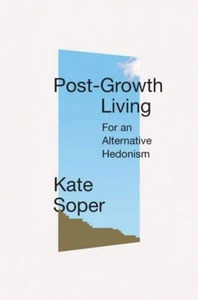
Have you ever bought a new coat and thought, “hmm, now I need a smarter bag to go with it”? If so, you’ve experienced the Diderot Effect. Denis Diderot (1713-84) was a French writer, famous for his encyclopaedia and a novel about saucy nuns.
In 1765, his daughter was getting married and Diderot couldn’t afford to pay for the wedding. Fortunately, Catherine the Great (a big fan of Diderot) came to the rescue by paying him the equivalent of $150,000 for his personal library, also allowing him to retain the books. With money to spare after paying for the nuptials, Diderot bought himself a smart new scarlet robe. Swishing about in his new acquisition, he suddenly realised that everything else at home was a bit shabby. Soon he’d acquired an expensive rug, pricey sculptures, and a stylish leather chair. Diderot describes the experience in his ‘Regrets for my Old Dressing Gown, or, a warning to those who have more taste than fortune,’ later inspiring anthropologist Grant McCracken to coin the term the “Diderot effect”.
As James Clear explains in Atomic Habits (2018), “[t]he Diderot Effect states that obtaining a new possession often creates a spiral of consumption that leads to additional purchases”. Retailers exploit this psychology by strategically promoting accessories and related items, often through the ubiquitous “Customer who bought this item, also bought …” algorithm. This is at least more sophisticated than the trend in the 1980s and 90s for themed kitchen paraphernalia. We were encouraged to buy matching kettles, clocks, oven gloves, and just about everything else. My sister-in-law was obsessed with the Eternal Beau range, steadily accumulating most of the items. Her kitchen became a Magic Eye picture of matching florals where you had to stare for at least half an hour to find the toaster.
Those headache-inducing kitchen accessories are an example of what Grant McCracken calls “Diderot Unities” — groups of objects that are culturally complementary to one another. Arguably, Apple understands this concept better than anyone. If you buy an iPhone, you’ll quickly find yourself with both a MacBook and an iPad, even though all three devices essentially do the same thing now (and there are far cheaper alternatives). I’ve noticed a more insidious form of Diderot Unities, where we’re encouraged to buy connected, rather than matching, devices. Shopping for a new dishwasher recently, I was bewildered by the Bluetooth-enabled models that promised to text me when the cycle was finished. Even air fryers can now communicate both with other devices and their owners. Do we really want our appliances talking about us behind our backs? Or, less fancifully, reporting our movements to their manufacturers?
These updated models don’t constitute progress. As Avner Offer points out in The Challenge of Affluence (2006), whereas early kitchen appliances saved us time and drudgery, recent “innovations” have been mainly cosmetic or unnecessary. We must still load and unload the dishwasher and respond to its demands for salt, rinse aid, and frequent declagging. Meanwhile, efforts are mostly focused on technology that uses our time, rather than saves it: “The task of engaging idle minds has proved more amenable to technology than the challenge of keeping house.” These conspiratorial devices create an illusion of advancement, but really they’re encouraging a mindset where an analogue device becomes glaringly old-fashioned and in need of replacement. Like Diderot, we become dissatisfied with possessions that were once perfectly adequate. This lifestyle inflation keeps us on the hedonic treadmill of constant niggling dissatisfaction. Instead of cutting ourselves some slack, we make frantic efforts to get what everyone else seems to have.
I’m taking a small stand by only ever buying the most basic appliances. They’re generally cheaper, easier to fix, and less likely to gossip about me on WhatsApp. Yet it feels countercultural. After all, there are lots of highly paid marketing executives who ramp up the fear of being left behind. In Post-Growth Living (2023), Kate Soper writes that reducing our consumption is presented as a “form of sacrifice and loss of pleasure”. Instead, she encourages us to:
“advance beyond a mode of life that is not just environmentally disastrous but also in many respects unpleasurable, self-denying and too puritanically fixated on work and money-making, at the expense of the enjoyment that comes with having more time, doing more things for oneself, travelling more slowly and consuming less stuff.”
Heeding Diderot, we need to be wary of having “more taste than fortune”. For me, Soper’s concept of “alternative hedonism” is far more seductive than a chatty air fryer. If you’re buying a new kettle, it doesn’t need to match the toaster, or tell all your friends on Facebook when it has boiled.